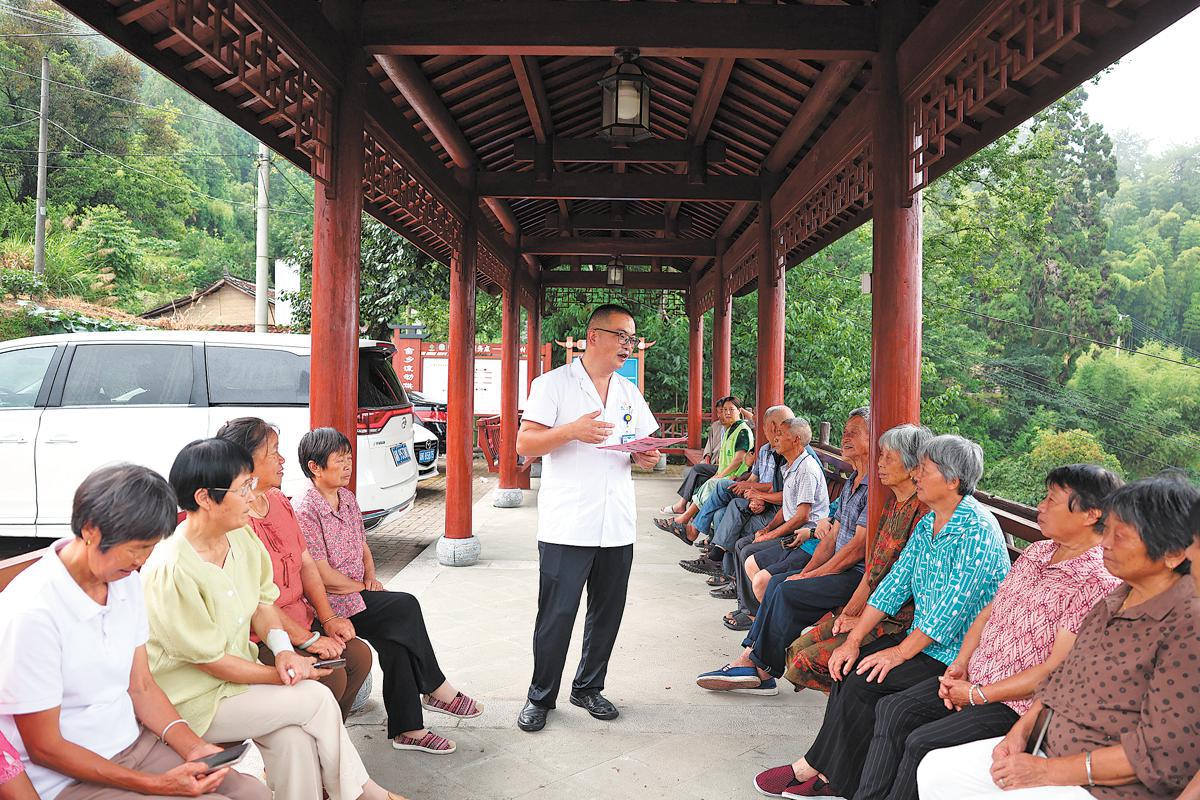'Healthcare on wheels' brings vital services to remote mountain villages


Peng Dewei, deputy head of the county health bureau, said the program started with four vehicles. By early 2024, Zhejiang had standardized the design and onboard equipment of all mobile clinics.
Each vehicle now carries a general practitioner and a nurse, and is equipped with more than 20 types of medical devices, including ECG monitors and portable ultrasound machines.
"The mobile clinics are designed for rugged terrain and limited power supply in the mountainous region. They also incorporate AI-assisted diagnostics and internet of things technology," said Xie Jianhao, board chairman of Ningbo Careful Special Cars Co, a manufacturer of the vehicles.
Appointments can be made via a mobile app or through a village health manager, with traditional Chinese medicine practitioners or ultrasound specialists dispatched as needed.
Moreover, Jingning has established a digital dispatch system that tracks each vehicle in real time. If there is an emergency, the nearest mobile clinic can switch to ambulance mode.
Peng said that patients in remote areas can also use telemedicine services to consult with hospital specialists.
"The unequal distribution of medical resources is a global challenge, especially in remote areas," said Wu Liying, head of the county health bureau. "Jingning's smart mobile clinic initiative provides a viable solution."
According to Wu Liying, by May this year, Jingning's seven mobile clinics had traveled over 250,000 km and provided more than 100,000 medical services. Thanks to the mobile clinics, more than 70 percent of patients with chronic conditions like hypertension and diabetes in the county now receive care through standardized protocols.
In Lishui city, which administers Jingning, operating mobile clinics can save around 60 million yuan ($8.36 million) in annual operating costs and 233 million yuan in construction costs when compared with running a clinic in each village.
Zhejiang now has over 500 such mobile clinics, covering nearly all of its remote rural regions.
Xie noted that the vehicles produced by his company have reached mountainous areas in central and southwestern China. His company now has its sights set on international markets, including Southeast Asia and the Middle East.
"Our approach has been praised by health professionals in many developing countries," Wu Liying said. "It offers an affordable, adaptable solution for improving primary care access in those countries."





































